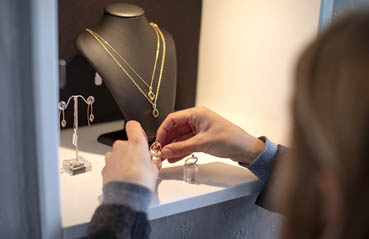Published: 11 Aug 2017
Common gold scams you must be aware of

Gold is a deeply sentimental purchase for Indians, and it is a metal we regard as a safety net. Gold ETFs come with inbuilt safeguards against fraud. However, one must take certain precautions while buying physical gold from the retail market. If you are thinking of buying gold, here are some known gold scams you must be aware of.
-
The relic scam.
This scam involves a fraudster offering to sell fake gold relics. In one such case, perpetrators from Rajasthan pretended to be farm labourers who found gold bars, and contacted the would-be victim to sell it at below-market rates. The transaction went smoothly. However, upon trying to sell off the relics, the victim realised that he had bought fake gold, and informed the authorities about the fraudster.
-
Bait and switch
This is a common conning technique in the gold market. A gold company approaches you with a tempting deal. Once they gain your trust, they introduce you to a broker or other third party who quickly draws your attention to a different product that may suit your needs better. For example, a special edition of gold coins. You presume that the company is trustworthy and so the broker must be too, and that’s where the con takes place. For example, the sale of historical artefacts – many have been duped by sellers’ claims of genuine old gold coins etc. and much talk and examination is allowed before the sale, but when the sale happens, the customer finds the coin/artefact he’s been sold has been ‘switched-up’ for a replica.
-
Investing in collectible gold coins
When buying gold coins to add to your collection, you may seek out strange and intricate designs, shapes, and textures, and this is where some con artists make their money. This type of investment/purchase can be very tricky because if you are a novice in the field of rare gold coins then there is always a chance that you are unable to differentiate a quaint, ancient artefact, from one that’s fake or impure. You might end up buying a gold coin under the false pretence that it is indeed very valuable, while , you might have paid ten times more than the actual price of the coin. It is advisable that before buying or investing in rare gold coins, you consult with an expert.
-
Partial delivery scam
This scam is one of the things that can go wrong when you buy gold online from unrecognized sites. A Partial Delivery Scam involves two cases:
- The buyer makes the payment for a partial delivery of the gold but never receives the shipment.
- The buyer pays a certain amount and gets a small part of the entire shipment. Once the buyer is convinced of the gold’s authenticity, they make the entire payment but never get the rest of the shipment or they receive a shipment with fake gold.
One way to avoid becoming a victim is to do a quick background check on the company before placing an order. Make calls to customer care, and verify the office address online. Also, try to avoid online payments, and instead opt for cash on delivery.
-
Mine owners
This is a very common gold scam technique. Buyers receive a mail from someone claiming to be a gold mine owner or in some cases a member of a royal family in Africa. They tell the buyers that they want to sell a huge amount of gold at a very low cost and ask the buyers to pay the shipping cost upfront. Because these fraudsters are offering the buyers an enormous quantity of gold, the shipping cost involved is exorbitant. Once the buyer makes the payment, it is possible that they never hear from the seller again
-
The 'special price' scam
If you spot a 'special price' offer on a website selling gold, do not jump at the opportunity; dig a little deeper. The website might look genuine and the offer might look great, but some of these websites charge a huge shipping cost which isn’t revealed to the buyer until the check-out stage. Since most online transactions involve a shipping cost, is this really a cause for alarm? Well, it is, because the shipping costs charged are twice the price of the gold they sell. Also, these are hidden from the buyer. These websites mention in very fine print that the shipping cost increases according to the amount of gold bought. Since this isn’t mentioned outright, the buyer might just complete the transaction and realise later on that they have been charged a lot more than the actual price. To avoid this, ensure you read the fine print and check the actual cost they are paying while checking out.
-
Price protection schemes
The seller assures the buyer that if the gold price falls, they can buy it at a lower price by taking the price protection deal. The scheme is usually valid for a duration of 4-7 days. The deal sounds great! Who wouldn’t want gold at a lower price? There is obviously a catch the sellers won’t tell you about. This price protection program applies only to numismatic coins (rare or valuable coins), which are already overpriced, and not to bullion coins. In the end, the buyer has actually paid extra for a protection program which isn’t even applicable to their purchase.
Thankfully, there are a few ways through which you can avoid being a victim.
- Buy gold only from reputable dealers
- If you are looking to buy jewellery, make sure it is hallmarked, bearing all 4 signs of a hallmark.
- If you are buying coins, consider buying coins minted by recognised organisations with tamperproof packaging; one such coin is the Indian Gold Coin, which comes with in-built anti-counterfeit features and a buy-back guarantee.











